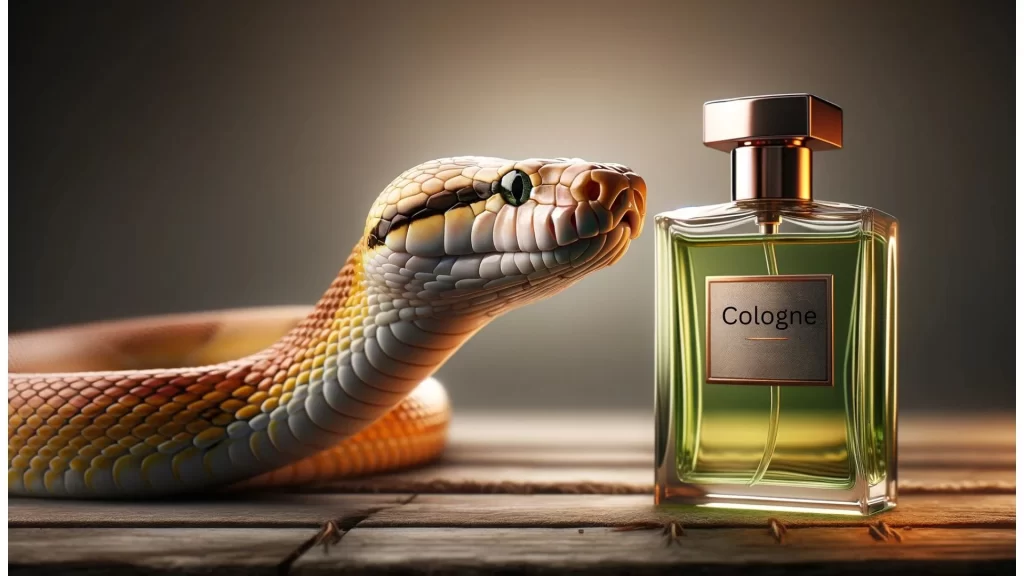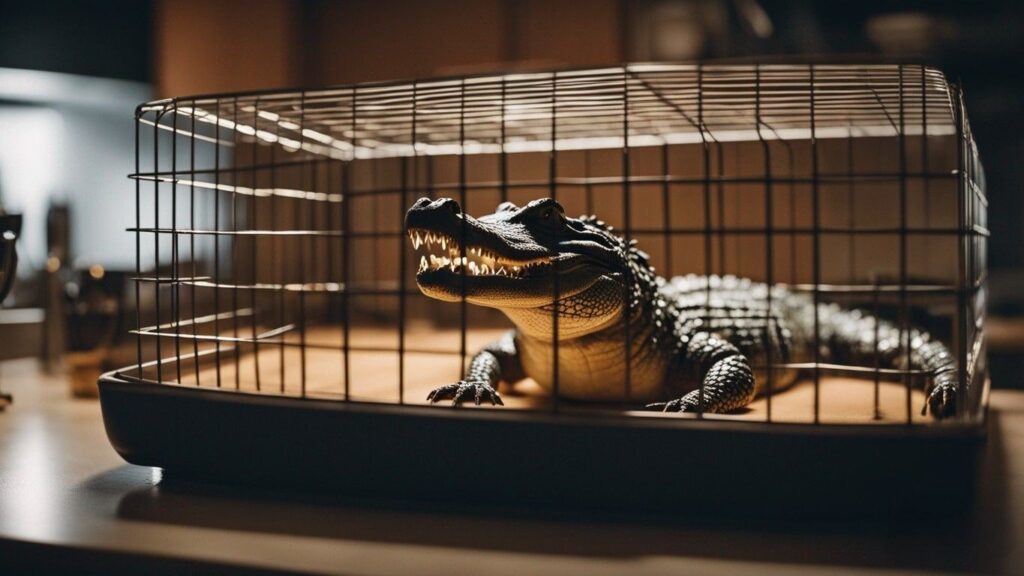
Have you ever wondered whether or not pet snakes emit an unpleasant odor? Many people are skeptical when it comes to welcoming these slithering creatures into their homes, fearing that their presence might lead to a constant pungent smell lingering in the air.
In this article, we will explore the truth behind the popular belief and uncover whether owning a pet snake is synonymous with a stinky living environment.
Overview
Snakes as Pets
Snakes have become increasingly popular as pets in recent years. They are fascinating creatures that intrigue many people with their unique characteristics and exotic appearance.
However, one concern that potential snake owners often have is whether or not they will produce an unpleasant odor.
This article will explore the issue of snake odor and discuss the factors that can contribute to it.
It will also provide tips and strategies for reducing and preventing snake odor, debunk common misconceptions, and address personal sensitivities.
Additionally, we will look at the correlation between snakes and household odor and discuss emerging technologies that can help mitigate any unwanted smells.
Ultimately, responsible ownership is key to maintaining a pleasant living environment for both you and your pet snake.
The Issue of Odor
While not all snakes have a strong odor, some species may produce an unpleasant smell that can permeate their surroundings.
This can be a concern for snake owners who want to ensure their homes remain fresh and clean.
The smell can be particularly noticeable in enclosed spaces such as snake habitats or the room where the snake resides.
It is important to understand the factors that contribute to snake odor and take the necessary steps to keep it under control.
By addressing these factors, you can create a pleasant living environment for both you and your pet snake.
Factors Affecting Snake Odor
Natural Odor
Just like any living creature, snakes have their scent. It is important to differentiate between a natural odor and a foul odor.
Snakes have a scent that is unique to their species, which is a natural part of their biology. While this scent is not necessarily unpleasant, some individuals may find it strong or distinct.
It is essential to recognize that this natural odor is part of the snake’s identity and should not be confused with poor hygiene or neglect.
Diet
A snake’s diet plays a significant role in its odor profile. Certain foods, such as rodents, can have a strong and distinct odor.
When a snake consumes these prey items, their digestive system processes them, releasing the corresponding odor.
Consequently, the scent can be transferred to the snake’s waste, causing an increase in overall odor.
Therefore, it is essential to consider the type and quality of the food you are providing your snake to minimize any potential odor issues.
Cage Maintenance
Keeping your snake’s enclosure clean is crucial in managing any odor concerns. The accumulation of waste, shed skin, and uneaten food can contribute to an unpleasant smell. Regular cleaning and maintenance of the snake’s habitat, including the removal of waste and debris, are necessary to prevent the buildup of odor-causing substances. Additionally, ensuring proper ventilation and airflow in the enclosure can help reduce stagnant smells and promote a healthier living environment for your snake.
Health Issues
Certain health conditions can lead to an increase in snake odor. Infections, digestive disorders, or parasites can cause changes in a snake’s natural scent or result in foul-smelling excretions. If you notice a sudden, significant change in your snake’s odor, it is essential to consult a veterinarian to rule out any underlying health issues. Addressing these problems promptly can prevent them from worsening and help restore a healthy bodily odor in your pet snake.
Breeding Season
During breeding season, some snake species may emit a stronger odor or display more territorial behavior. These changes occur as a result of hormonal fluctuations and mating rituals. It is important to be aware of these natural occurrences to better understand and manage any odor-related issues during this time. Maintaining a consistent and secure environment for your snake can help alleviate any stress they may experience, potentially reducing any increased odor production.
Reducing Snake Odor
Proper Feeding
Carefully selecting high-quality food for your snake can significantly reduce potential odor issues. Opting for prey items that have a minimal odor, such as freshly killed or frozen rodents, can help minimize the odor produced during digestion. Additionally, ensuring proper portion control and feeding your snake at regular intervals can prevent overfeeding and decrease the amount of waste produced. By providing a balanced and nutritious diet, you can promote your snake’s overall health and minimize any associated odors.
Cage Cleaning
Maintaining a clean and sanitary enclosure is crucial in managing snake odors. Regularly remove any waste, shed skin, or uneaten food promptly. Use appropriate cleaning products and disinfectants to eliminate bacteria or odorous substances that may linger in the enclosure. Additionally, consider using odor-absorbing materials, such as activated charcoal or baking soda, to help neutralize any residual smells in the cage. A clean and odor-free environment not only benefits your snake but also contributes to a more pleasant living space for you.
Habitat Considerations
The design and setup of your snake’s habitat can play a significant role in managing odor. Choose substrates that promote proper moisture control and are easy to clean, such as reptile-safe paper or artificial turf. Avoid using materials that can trap odors or become difficult to clean, such as wood shavings or soil. Additionally, providing adequate hiding spots and enrichment items can reduce stress in your snake, potentially decreasing any odor-related issues. Pay attention to the overall airflow and ventilation within the enclosure, ensuring proper air circulation to prevent stagnation and promote a fresher environment.
Hydration
Maintaining proper hydration for your snake can help prevent concentrated urine and feces, which can contribute to strong odors. Ensure that your snake has access to clean, fresh water at all times. Depending on the species, some snakes may benefit from occasional misting or soaking to aid in shedding and hydration. By providing adequate water sources and ensuring proper hydration, you can help reduce potential odor-related problems.
Odor Neutralizers
In some cases, despite your best efforts, you may still notice lingering odors in your snake’s enclosure. Odor neutralizers, specifically formulated for reptiles, can be useful in managing persistent smells. These products work by neutralizing odorous molecules and can help maintain a cleaner and fresher living environment for both you and your pet snake. However, it is crucial to follow the instructions provided by the manufacturer to ensure the safety of your snake and prevent any adverse reactions.
Preventing Odor-Related Health Problems
Regular Vet Visits
Regular veterinary check-ups are essential in maintaining your snake’s overall health and preventing any potential odor-related issues. A veterinarian experienced in reptile care can perform routine examinations, provide necessary vaccinations or parasite treatments, and offer advice on proper husbandry. By proactively addressing any health concerns, you can prevent them from escalating and causing more significant odor problems.
Correct Feeding Schedule
Establishing a consistent and appropriate feeding schedule for your snake is crucial to their overall health and can help prevent odor-related health problems. Overfeeding or irregular feeding can lead to gastrointestinal issues, which can increase the likelihood of foul-smelling waste. Consult a veterinarian or reptile specialist to determine the optimal feeding frequency and portions for your specific snake species. By adhering to a proper feeding schedule, you can minimize digestive disturbances and promote a healthier odor profile in your pet snake.
Temperature and Humidity Regulation
Maintaining the correct temperature and humidity levels within your snake’s enclosure is essential in preventing odor-related health problems. Improper temperature and humidity can disrupt a snake’s digestive system and potentially lead to bacterial overgrowth or infections, resulting in unpleasant odors. Research the specific requirements of your snake species and invest in appropriate heating and monitoring equipment to ensure that the enclosure remains within the optimal range. By providing a suitable climate, you can mitigate potential health issues and minimize any associated odors.
Common Misconceptions
Snakes as Dirty Animals
There is a widespread misconception that snakes are inherently dirty animals that produce strong, unpleasant odors. However, this generalization is not accurate for all snake species. While some snakes have a more pronounced natural scent, it does not necessarily indicate uncleanliness or poor hygiene. It is important to assess the specific factors contributing to any odor issues and not make assumptions based solely on a snake’s presence or natural scent.
All Snakes Have Strong Odors
Contrary to popular belief, not all snakes have strong odors. The intensity of a snake’s smell varies depending on its species, individual biology, and habitat conditions. Some snakes may have a subtle scent that is barely detectable, while others may produce a more distinct odor. It is important to consider these variations and not make assumptions about all snake species based on a personal encounter with a particular individual or species.
Smell Perception Differences
People’s perceptions of smell can vary greatly. What may be unnoticeable or even pleasant to some individuals could be overpowering or unpleasant to others. It is important to recognize that the perception of snake odor can be subjective and may vary from person to person. Maintaining proper husbandry practices and addressing any noticeable odor issues promptly can help create a more agreeable environment for both you and your pet snake.
The Smell Scale
Ranking Snake Odor Intensity
Ranking the odor intensity of different snake species can be challenging, as it depends on various factors, including personal perception and individual snake biology. However, certain species have been known to produce more noticeable smells. For example, some constrictor species, such as boas or pythons, may have a stronger musky scent, while others, such as corn snakes, may have a milder odor. It is essential to conduct thorough research on specific snake species before making a decision on ownership, particularly if you have sensitivities to certain smells.
Least and Most Odorous Snakes
While it is challenging to rank snakes based on odor intensity, certain species have gained reputations for being either less or more odorous. Among the commonly kept pet species, corn snakes and ball pythons are generally regarded as having less noticeable odors. On the other hand, some larger constrictor species, like reticulated pythons or anacondas, may have stronger smells due to their size and metabolism. It is important to note that individual variation within species can still occur, so it is crucial to consider each snake on a case-by-case basis.
Dealing with Personal Sensitivities
Personal Allergies
Some individuals may have allergies that can be triggered by specific odors or allergens present in snake habitats. Common allergens associated with snakes include dander, mites, or shed skin particles. If you or anyone in your household has known allergies, it is important to consult with a medical professional before considering a snake as a pet. They can help assess the potential risk and provide guidance on managing allergies while maintaining a healthy living environment for both you and your pet snake.
Specific Sensitivities
In addition to allergies, some individuals may have specific sensitivities to certain smells or substances associated with snakes. These sensitivities can vary greatly from person to person and may be unrelated to any underlying medical condition. If you find that you are particularly sensitive to snake odors, despite proper husbandry practices, consider exploring alternative options for pet ownership that align better with your personal sensitivities. It is important to prioritize your health and well-being when choosing a companion animal.
Snakes and Household Odor
Separating Fact from Fiction
There is a common misconception that owning a snake automatically leads to a perpetually unpleasant-smelling home. However, this belief is not entirely accurate. While it is crucial to manage and address snake odors appropriately, with proper husbandry and care, the impact on household odor can be minimal. By following the guidelines outlined in this article and maintaining a clean and well-ventilated living environment, you can enjoy the company of a snake without compromising the fresh atmosphere of your home.
Proactive Measures
To further minimize any potential impact on household odor, consider implementing proactive measures. For example, regularly clean and sanitize the area surrounding the snake’s enclosure, including floors, surfaces, and fabrics, to prevent odor contamination. Use air fresheners or natural odor absorbers strategically placed around the room to help maintain a pleasant atmosphere. Additionally, ensure proper waste disposal to prevent any lingering smells from waste removal or cleaning processes. By taking these additional steps, you can create a harmonious balance between owning a pet snake and maintaining a fresh home environment.
Emerging Technologies
Odor-Capturing Enclosures
Advancements in enclosure design and materials have led to the development of odor-capturing technologies specifically tailored for snake habitats. These enclosures utilize filters and airflow systems to capture and neutralize odorous substances, preventing their spread throughout the surrounding environment. While these enclosures can be more costly, they can be a worthwhile investment for individuals with heightened sensitivities or those who prioritize minimal odor impact in their living spaces.
Air Purification Systems
Air purification systems designed for use in reptile habitats can significantly contribute to reducing unwanted odors. These systems utilize various methods, such as activated carbon filters or UV sterilization, to combat odor-causing particles and bacteria in the air. By implementing an air purification system in the vicinity of your snake’s habitat, you can maintain a cleaner and more enjoyable living environment for both you and your pet snake. However, it is important to research and select a system that is compatible with reptile-specific needs and safe for your snake’s health.
Final Thoughts
Snakes can make fascinating and captivating pets, but concerns about potential odors may overshadow their appeal for some individuals.
By understanding the factors that contribute to snake odor and implementing proper husbandry practices, you can effectively manage and minimize any associated smells.
Regular cleaning, proper diet, and maintaining a healthy living environment for your snake can help prevent odor-related health problems and create a more enjoyable experience for both you and your pet.
It is crucial to dispel common misconceptions about snake odor and be mindful of individual sensitivities when considering snake ownership.
With responsible ownership and proactive measures, you can strike a balance between the benefits of owning a snake and maintaining a fresh and pleasant living environment.



